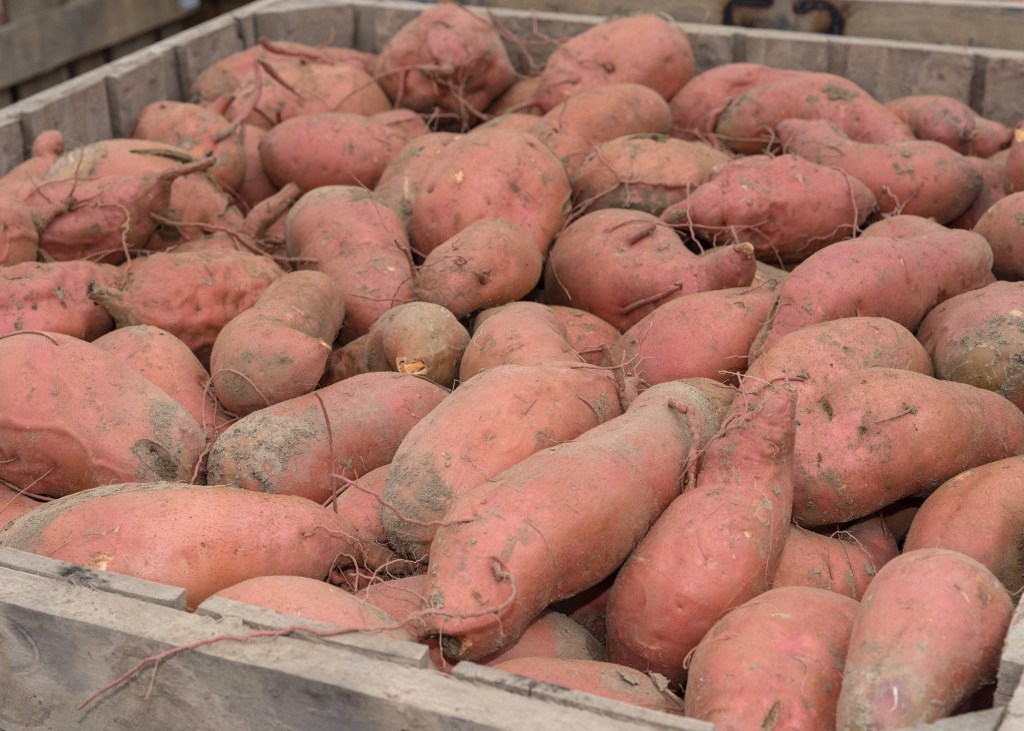Dry conditions mix up sweet potato sizes
Published 8:30 am Sunday, November 5, 2023

- Cutline: Several sweet potato fields in Mississippi went 45 days without a drop of rain during peak root bulking from July to August, resulting in a wide variety of sizes. (Photo by MSU Extension Service/Kevin Hudson) Alt text: A large volume of sweet potatoes in a container.
By Nathan Gregory
MSU Extension Service
Most of Mississippi’s sweet potatoes are grown far northeast of the state’s worst drought conditions, but that did not keep excessive heat and dryness from factoring in this year’s crop.
Lorin Harvey, sweet potato specialist with the Mississippi State University Extension Service, said dry weather affected production more than most growers anticipated. Because of the drought, irrigated acres performed better than potatoes on dryland.
Trending
“Those in the Delta who utilized irrigation fared better than many of the growers around Vardaman who were at the mercy of soil moisture at planting and sparse rainfall throughout the growing season,” Harvey said. “We had sparse popup showers around the growing region, but nothing substantial. Several fields went 45 days without a drop of rain during peak root bulking from July to August.”
The lack of precipitation has caused variability in the size of potatoes between fields and increased chances of skinning, making it hard to plan for harvest.
“Harvest started about 10 days earlier than last year, but growers slowed down to allow for deveining, skin to set, and for sweet potatoes to continue to size up,” Harvey said. “That put the remainder of the harvest at about a week behind where we were last year in mid-October.”
Caleb Englert, Mississippi Sweet Potato Council president, said potatoes planted by mid-May received a couple of significant rainfalls before the dry spell and have had good yields. Later planted acreage faced a tougher battle. A “fair-to-average” crop, which he anticipates, should be enough for most growers to turn a profit.
“If we could sell dust, we’d retire tomorrow,” Englert said. “It’s been hot and dry with some ground cracking. We are seeing some smaller product than normal. With it being this dry, there could be some rot on weight.”
About 65 commercial growers in Mississippi planted about 28,000 acres of sweet potatoes this year. In terms of quality, Harvey said, early harvested potatoes appeared promising.
Trending
“Quality is something Mississippi has been pretty consistent with due to careful management practices and field selections,” he said. “We’ve seen some growth cracks in roots that were dry and quickly sucked up water when it did rain, but that is to be expected. This year’s crop will likely come out to be lower than average due to the lack of rainfall.”
Overall U.S. sweet potato production is down this year due to a 20 percent acreage reduction in North Carolina, which is the top producing state. Mississippi ranks second.
MSU Extension is offering free soil sample testing for nematodes to sweet potato growers until the end of 2024. Samples can be submitted in nematode bags available at local county MSU Extension offices. Samples are also accepted in quart-sized, sealed plastic bags. Bags must be labeled and accompanied by the nematode sample submission form F448, available at https://extension.msstate.edu/
Anyone interested in supporting the state’s sweet potato industry can attend the 50th Annual Vardaman Sweet Potato Festival on Nov. 4 in downtown Vardaman. For more information, visit https://vardamansweetpotatofes





